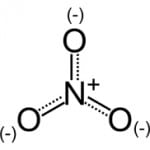
ALL ABOUT NITRATES
Nitrates! The word spawns images of hot dogs, bacon, and luncheon meats. We’ve been told to avoid them like the plague, at least if we want to minimize our risk of cancer. Nitrates have become something of a “processed food demon” in the realm of nutrition.
This is all changing, however. In fact, nitrates are now being studied not only for their endurance-boosting capacities, but for their impressive health benefits. Wait a second… health benefits!?
Let’s delve a little deeper into this misunderstood compound.

Nitrates are naturally occurring compounds found in food and water. They are also used in the production of cured meat products including hot dogs and bacon. This might surprise some of you, but vegetables contain the highest concentration of nitrates in the food world, chief amongst them being leafy greens, beets, and celery. Researchers are going as far as speculating that the high concentration of nitrates in vegetables are responsible for the many health benefits associated with vegetable consumption.
Nitrates from food react with bacteria in our saliva, which convert them to nitrites. *Key point: Antibacterial mouthwash prevents mouth bacteria from converting nitrates into beneficial nitrites. Further along the digestive process, these nitrites are converted to nitric oxide, which provides the notable health and performance benefits associated with beet juice and vegetable consumption.
As we boost our body levels of nitric oxide, we benefit from increased blood flow to muscles and more efficient oxygen utilization. From a performance perspective, this means increased time to exhaustion.
Is it worth supplementing?
Nitrates derived from beetroot juice or a beetroot powder supplement can be a worthwhile addition to your pre-workout and pre-race repertoire.
Nitrates have the most pronounced effect on short-duration activity, lasting from 1-10 minutes. The benefits still apply to longer duration activity (5-10 km races), though to a lesser degree.
Peak effects of nitrate occur 2-3 hours after ingestion, so plan your intake accordingly. The optimal dose ranges from 6-12 mg/kg of body weight (400-800 mg for a 150 lb person).
Are nitrates safe?
Nitrates are not only a safe supplement, via food or beetroot supplement, but highly beneficial for cardiovascular health and performance.
There is some evidence that processed meat sources of nitrate such as bacon and hot dogs, may pose an increased risk of developing certain cancers due to formation of carcinogenic nitrosamines. However, this is far from conclusive.
As well, an easy way to mitigate the risk of these harmful compounds is to consume Vitamin C rich foods alongside your processed meats, which help to prevent the conversion of nitrates from meats into these nitrosamines. Eat some citrus fruit or berries with your bacon and egg breakfast and you’re good to go.
Summary
In closing, nitrates are a proven and effective performance-boosting substance that can be obtained through both diet (eat your beets!) or via supplementation. Not only will they benefit your short-duration exercise performance, but they’ll give you a host of cardiovascular health benefits as well.
Andrew Thomas is a Nutritionist and elite obstacle course racer with a passion for helping people achieve their health goals. Learn more at https://www.mudrunguide.com/2013/09/nutrition/
Find Drew online: http://www.nutritionwithdrew.com
Facebook: https://www.facebook.com/NutritionWithDrew
Follow him on Twitter: @nutritiondrew
SOURCES
http://examine.com/supplements/Nitrate/#summary10
http://www.runnersworld.co.uk/health/nutrition-clinic-nitrates—the-new-performance-booster/9606.html
http://www.runnersworld.com/nutrition-for-runners/beet-juice-how-much-and-when


Leave A Comment